Veena George Rejects Opposition Allegations, Affirms Government's Dedication to ASHA Workers
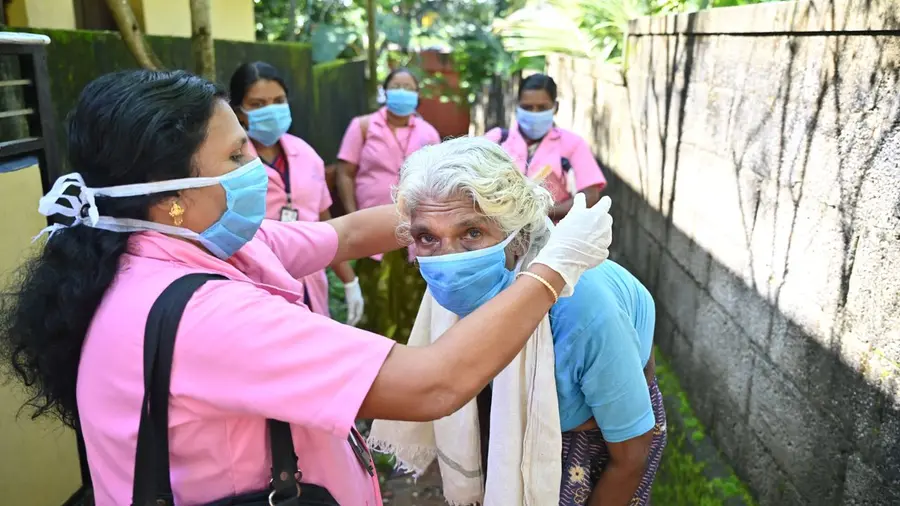

Anjali Ganga
Published on Mar 04, 2025, 05:26 PM | 8 min read
Thiruvananthapuram: In a spirited response to the UDF’s allegations in the Kerala Legislative Assembly regarding the honorarium of Accredited Social Health Activists (ASHA), Health Minister Veena George delivered a robust defence of the state government’s policies. Highlighting the pivotal role of ASHA workers in Kerala’s healthcare system, especially during the COVID-19 pandemic and ongoing public health initiatives, she emphasised the government’s unwavering commitment to their welfare. The UDF’s claims of neglect were met with a detailed rebuttal, as the Minister outlined the steps taken to ensure timely payments and improved working conditions for these frontline health workers.
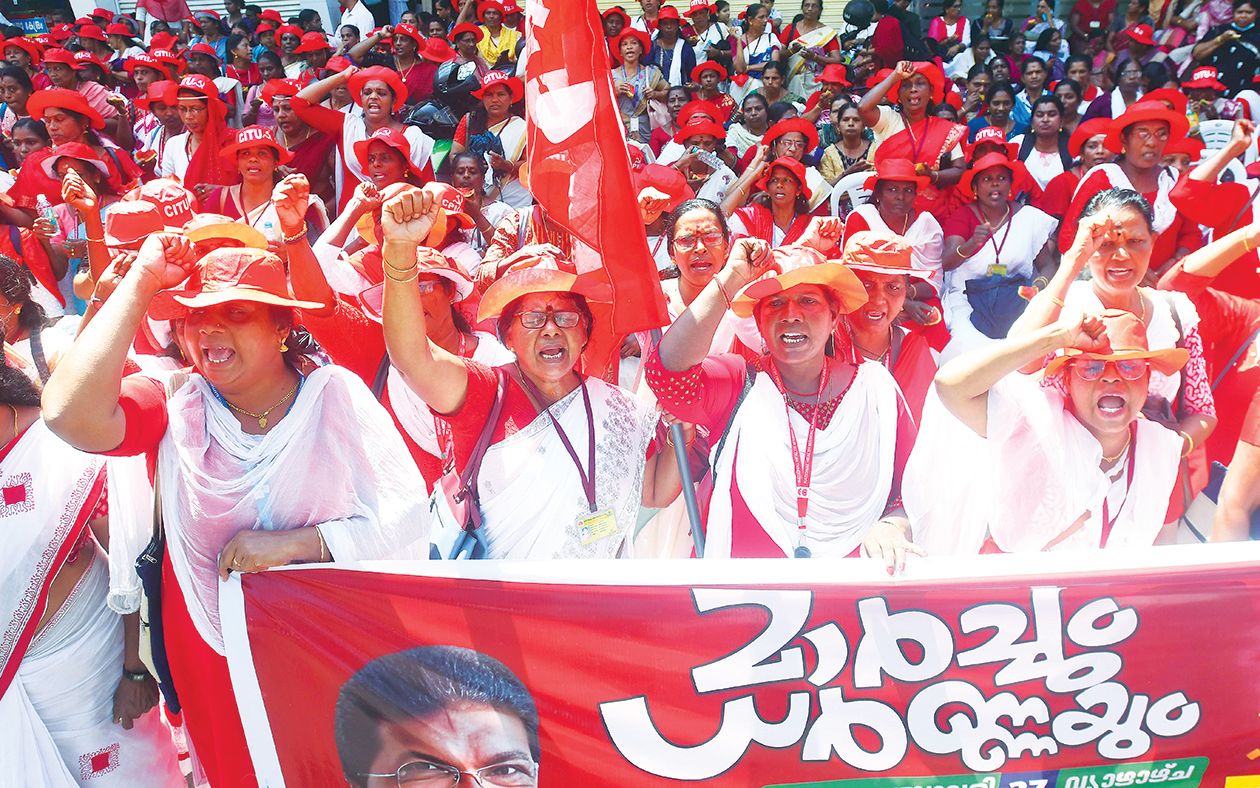
The ASHA scheme, a central government initiative launched in 2005, focuses on improving health services in rural areas, mainly by ensuring newborn immunisation, registering pregnant women, providing different palliative care, and implementing central and state government schemes. Minister pointed out that the ASHA scheme was introduced by the Manmohan Singh government in 2005. However, the UDF government in Kerala did not take the initiative to implement it in the state. The scheme was eventually launched in Kerala in 2007 under the leadership of then-Chief Minister VS Achuthanandan, she added. ASHA workers, mainly women volunteers, serve across Kerala, with a current workforce of 26,125 workers, of which 21,529 are in rural areas, 4,104 in cities, and 492 in tribal regions, said Minister in the legislative assembly.
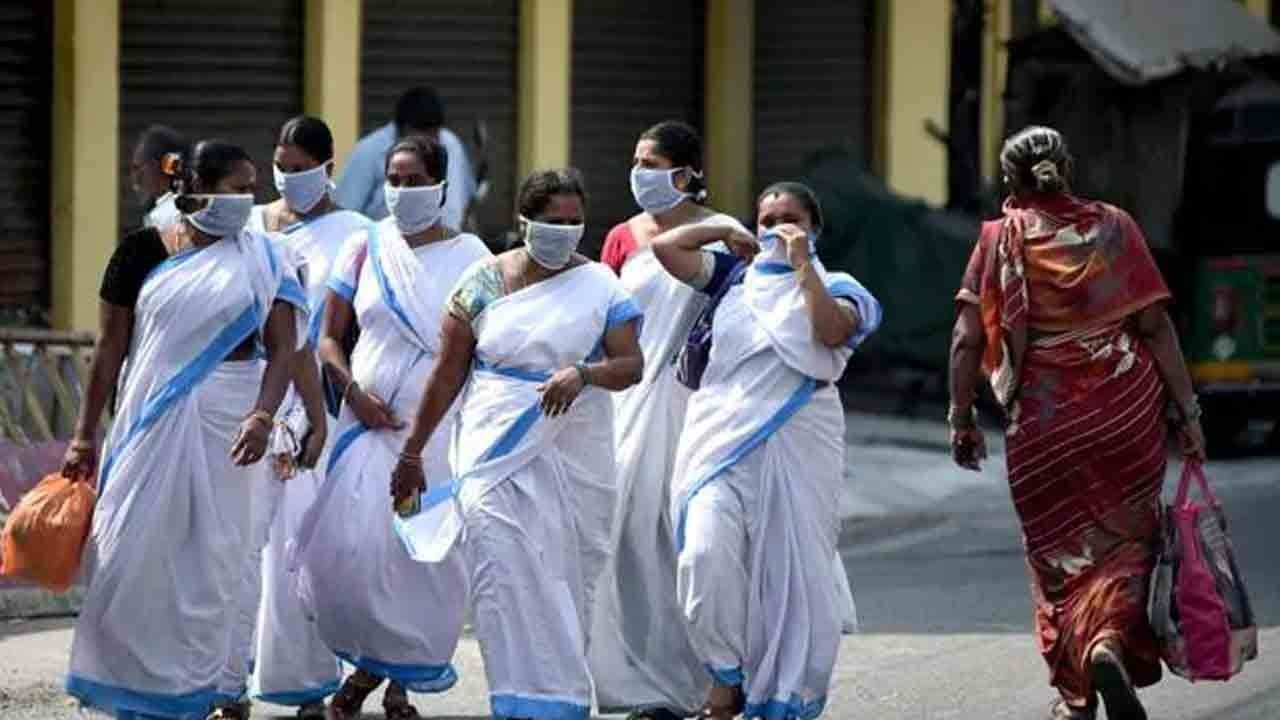
Kerala's Commitment to ASHA Workers: Highest Honorarium, Timely Incentives, and Welfare Support
Kerala’s ASHA workers are recognised for receiving the highest honorarium in the country, reflecting the state’s commitment to their welfare and professional development.
Health minister added that Kerala’s ASHA workers receive the highest honorarium in the country. The state contributes 7,000 rupees, while the central government provides a fixed incentive of 3,000 rupees, shared in a 60:40 ratio. Additional incentives are also provided for various health activities, such as immunisations, with workers earning 75 rupees for polio vaccinations and 25 rupees for other immunisations. These incentives are also distributed in a 60:40 ratio between the state and central governments.
Despite these provisions, around 100 crore worth of incentive payments are pending from the central government for Kerala ASHA workers for the 2023 -2024 period. However, the Kerala government has continued to pay incentives without any delay. Kerala is also the first state to introduce a festival allowance for ASHA workers, a move that was made in 2009-2010. In 2011, 500 rupees was allocated as an honorarium, and the UDF government only started disbursing it in 2013.
The Kerala government’s contribution to ASHA workers incentives stands at the highest in the nation, and workers in the state can earn up to rupees 13,000, a reflection of the state’s commitment to their welfare. Kerala has also been at the forefront of improving the conditions for ASHA workers, with benefits like maternity leave and educational support. The state encourages workers to complete their secondary education through the Saksharatha Mission, and 798 ASHA workers have enrolled in higher secondary education programs.
Different states provide varying levels of incentives for ASHA workers. Here is a summary of the state contributions presented by Veena George in Kerala Legislative Assembly:
State | Incentive in Rupees |
Andaman Nicobar | 500 |
Andhra Pradesh | 1,000 |
Arunachal Pradesh | 2,000 |
Bihar | 1,000 |
Chhattisgarh | 75% of the incentive |
Delhi | 3,000 |
Gujarat | 2,500 |
Haryana | 6,100 |
Himachal Pradesh | 4,700 |
Jharkhand | 1,000 |
Karnataka | 5,000 |
Maharashtra | 3,500 |
Manipur | 1,000 |
Meghalaya | 2,000 |
Madhya Pradesh | 4,000 |
Odisha | 1,000 |
Puducherry | 3,000 |
Punjab | 2,500 |
Rajasthan | 1,650 |
Sikkim | 6,000 |
Tamil Nadu | 500 |
Telangana | 6,750 |
Tripura | 33% incentive |
Uttar Pradesh | 1,500 |
Uttarakhand | 3,000 |
West Bengal | 5,250 |
Kerala | 7,000 |
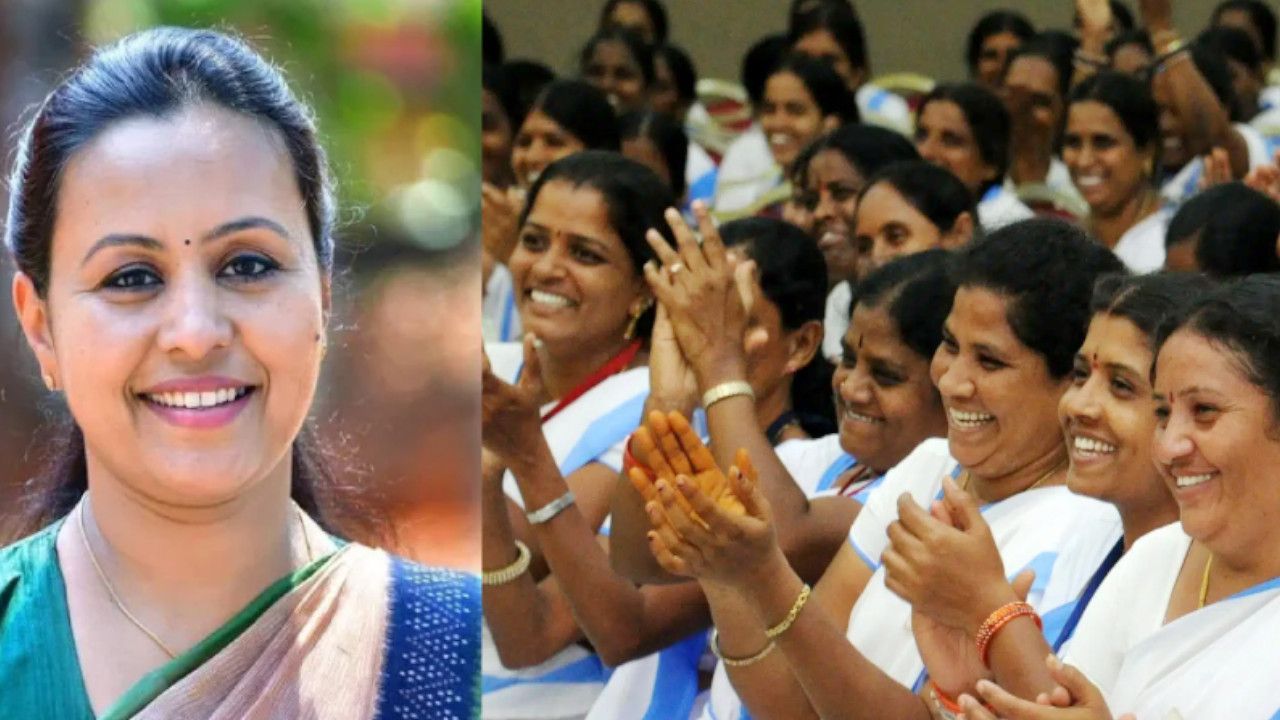
Veena George Slams UDF MLA for Echoing SUCI’s Arguments on ASHA Workers’ Issues
Rahul Mamkoottathil, the Congress MLA from Palakkad, has accused the Kerala government of denying ASHA workers the freedom to pursue other jobs in 2018. He also criticised the government for restricting ASHA workers to only women, despite the state’s ability to change this policy. Mamkoottathil pointed out that with the increase in working hours, ASHA workers were no longer able to take up additional employment. He further criticised Health Minister Veena George, claiming that she had never made an effort to meet with ASHA workers or listen to their concerns. Additionally, he highlighted that the honorarium for ASHA workers in Sikkim is 10,000 rupees more than what the Kerala government provides.
Health Minister has responded robustly to these accusations, pointing out that Mamkoottathil appears to be becoming a mouthpiece for the Socialist Unity Centre of India Communist by echoing their arguments. She added that Mamkoottathil should have consulted with the Indian National Trade Union Congress (INTUC) before projecting SUCI’s stance as his own in the legislative assembly.
The scheme, which has drawn criticism from opposition parties for its requirement that only women can serve as ASHA workers, was explained by George. “The ASHA scheme was constituted under the UPA government when Congress was in power at the centre, and it clearly stipulated that ASHA workers should be women volunteers,’ Veena stated, emphasising that the central government set the guideline and that the state could not alter this directive.
Addressing concerns about the educational qualifications of ASHA workers, the Minister highlighted that the initial requirement of a 7th grade education had been raised to the 10th standard. She assured that Kerala had not laid off any ASHA workers but had instead encouraged them to complete their SSLC through the state’s Saksharatha Mission.
She also pointed out the significant contributions of ASHA workers to the state’s governance and development. “A total of 729 ASHA workers have become local body representatives, with 113 holding positions such as president, vice president, or standing committee chairperson. Furthermore, 1,230 ASHA workers are employed under the Mahatma Gandhi National Rural Employment Guarantee Scheme (MGNREGS),” she said, emphasising the state’s commitment to empowering ASHA workers and expanding their roles in society, which nullifies Rahul’s criticism about the same.
Regarding the argument about the lack of a meeting with the Minister, she replied that Ramesh Chennithala requested that she meet with ASHA workers who were on strike in front of the secretariat. She then asked the SDM to conduct a meeting on February 14, which the state project manager attended. However, the ASHA workers insisted on meeting the Minister personally. On February 15, a meeting was held for 1 hour and 45 minutes, where the workers emphasised that their honorarium should be raised to 21,000 rupees along with other demands. The argument that the Sikkim government is providing 10000 rupees is not what the official authority provided to Kerala when its Health department requested the same. According to the Sikkim government, they only provide 6000 rupees. While in Kerala, 89.98 percent of ASHA workers receive between 10,000 rupees and 13,000 rupees.
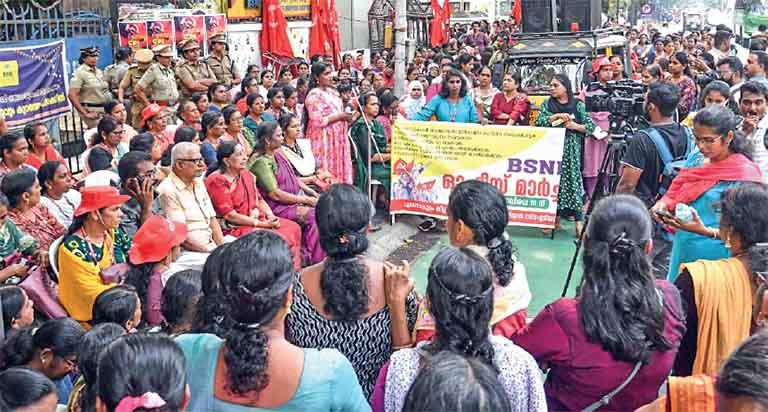
UDF’s Limited Efforts vs. LDF’s Comprehensive Support for ASHA Workers
When the UDF came into power in 2011, the UPA ministry was still in power at the centre. Despite this, no significant change was made in increasing the honorarium for ASHA workers. Congress government did not take any action to pressure the central government to place ASHA workers under the worker’s category. Instead, only a slight increase of 400 rupees was given under the UDF government, which translates to an increment of just 100 rupees per year. If the LDF had followed the same approach, ASHA workers would have continued receiving only 1,800 rupees. However, the LDF government promised to increase their honorarium by 1,000 rupees annually when they came into power in 2016, and this commitment was fulfilled without delay, with the honorarium eventually rising from 1,000 rupees to 7,000 rupees.
When the UDF came into power in 2011, it took 20 months even to give the honorarium. The honorarium expenditure under UDF in 2011-2012 was minimal, with only 0.11 percentage spent on ASHA workers. Honorarium payments were delayed, with the 2013-2014 honorarium paid in May 2014 and subsequent payments delayed by months. In 2014-2015, only 1.97 percent of the budget was allocated for honorarium.
In December 2014, Health Minister V S Sivakumar, during the UDF government, announced plans to increase the honorarium to rupees 1,000 with the support of local self-governing bodies. Despite this, no significant changes were made during UDF’s tenure in Kerala, and the matter of ASHA workers being recognised as official workers was never pursued aggressively by the Congress-led government at the centre.
When the LDF came to power in 2016-17, the total expenditure on ASHA honorarium was 46 crore. By 2024-2025, the budget allocation had increased to 189 crore, with actual spending reaching 211 crore. The LDF government also organised a meeting in 2023 with all health workers to address their work struggles and formed guidelines to improve their working conditions. AWFFI conducted a strike on the 6th and 7th of February and had a subsequent meeting with the government, during which they demanded the withdrawal of the OTP format for the Shaili survey. This demand was implemented the very next day. Additionally, ASHA workers requested that the Leprosy survey, implemented by the central government, be included in the Shaili survey, and this was also accepted.
Veena George also acknowledged that both INTUC and CITU were advocating for changes to the incentive -based honorarium system at the central level. However, opposition parties in Kerala, including Congress, have aligned with the BJP -led central government and have shamelessly supported the centre for its inaction in providing a decent honorarium for ASHA workers.



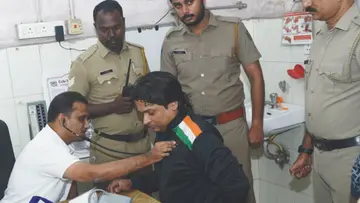
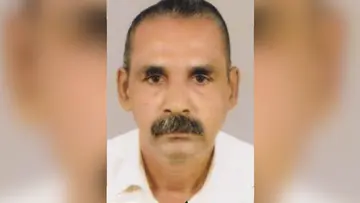
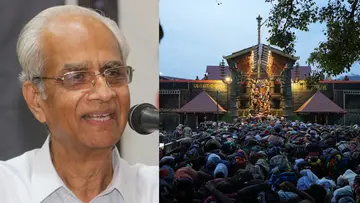
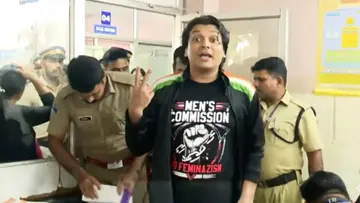



0 comments